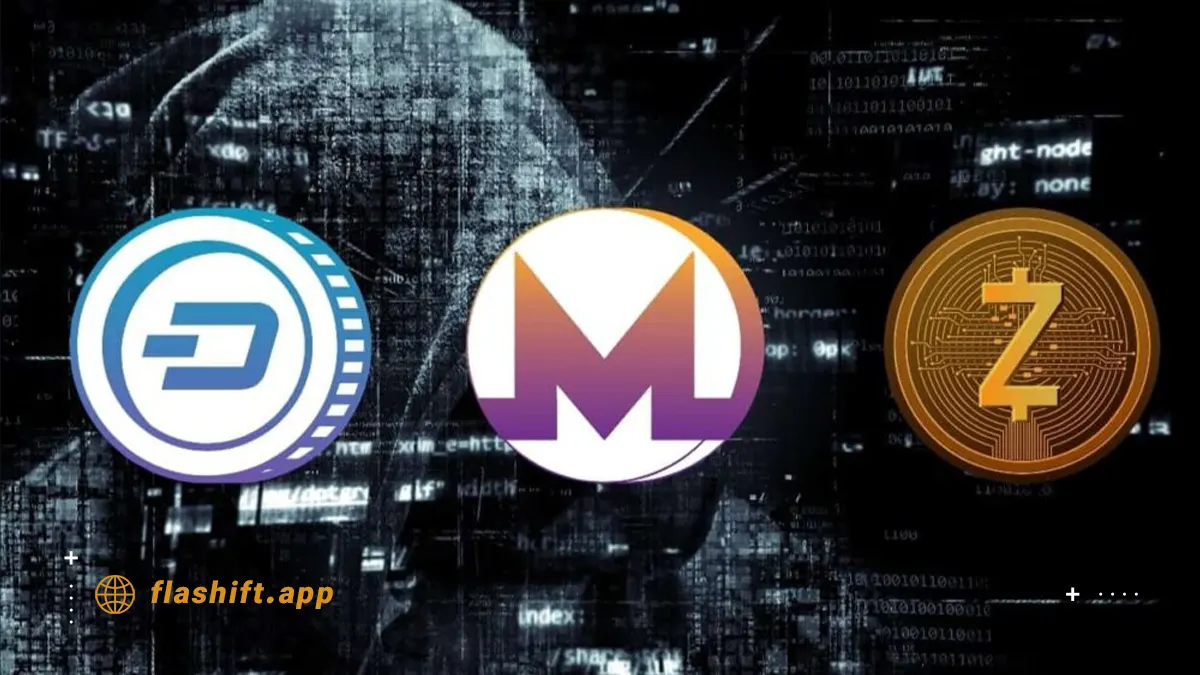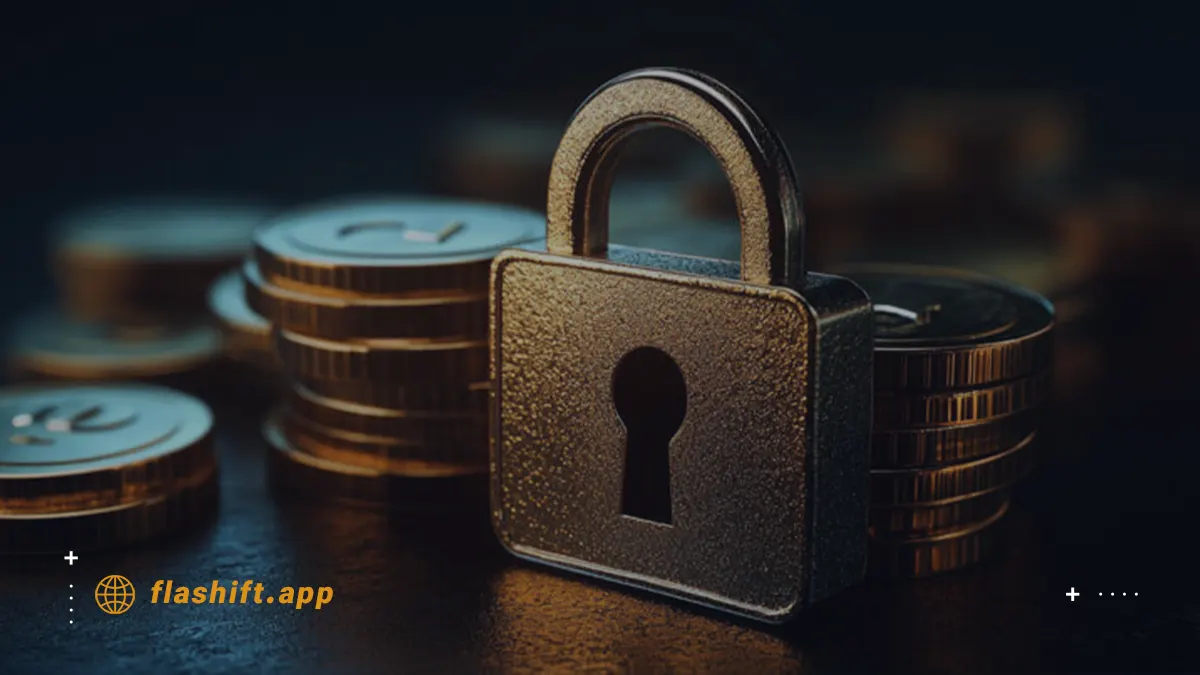Privacy Coins Benefits, Risks, and the Regulatory Outlook for 2024 | At the rate at which cryptocurrencies go up a notch in popularity, interest in privacy coins-cryptocurrencies that put a keener focus on transaction anonymity and user privacy-keeps going up. Privacy coins, such as Monero, Zcash, and Dash, execute their intentions to enable security for investors by cloaking users’ real identity and transaction details, thereby securing the anonymity of buyers and sellers.
With this, those wanting to keep their financial matters private have more options. These digital privacy assets come with their advantages but not without risks at a time when much regulatory scrutiny goes around. Below, we will go through the main benefits of privacy coins, possible downsides, and a changing regulatory landscape for 2024. Whether you are an investor, an enthusiast, or just a curious mind, after reading this article, you will learn how privacy coins could shape the future of decentralized finance.
To exchange cryptocurrency at the best rate, visit the Flashift website, create a registration-free transaction, and enjoy a secure and speedy experience.
What Makes Privacy Coins Unique? A Look at Monero, Dash, and Zcash
Privacy coins differ from the rest in the crypto space because they offer users higher levels of anonymity and confidentiality in transactions. Aspects that the more common cryptocurrencies, like Bitcoin, cannot promise.
Whereas Bitcoin and other similar tokens record the details of a transaction on a public blockchain, the privacy coins deploy advanced cryptographic techniques to mask the transaction details for availing benefits related to untraceability, protection from surveillance, and resistance to censorship. Features that underline the differences of the privacy coins include:
- Increased Anonymity: These are some of the most complicated ways to mask transaction details, and this privacy coin contains ring signatures, stealth addresses, and zero-knowledge proofs. Traces of the transactions above cannot be brought to specific individuals or wallets, hence providing an added layer of security.
- Selective Disclosure: Some privacy coins, like Zcash, offer users the ability to selectively disclose information about transactions at their discretion. This allows for flexibility so that users can comply with regulations or requirements for transparency.
- Resistance to Censorship and Surveillance: Privacy coins prevent the transaction data of their users from being revealed and thus help avoid financial censorship or surveillance by third parties, whether a government or a corporation. This becomes particularly important in regions that have highly restrictive financial systems.
- Security and Fungibility: With privacy protocols, no one knows the history of each coin. Thus, it ensures that “tainted” coins cannot be discriminated against because of activities that may have occurred with them in the past. This guarantees fungibility: These coins are just as replaceable as any other.
Monero, Dash, and Zcash
Monero, Dash, and Zcash are among the most renowned privacy coins, each made for specific privacy features that deal with developing interest in the confidentiality of cryptocurrency transactions. Let’s take a look at three of the most famous privacy coins and how they realize these benefits of privacy coins.

Monero (XMR): Regarded as the gold standard of privacy by many, using ring signatures, stealth addresses, and ring confidential transactions to mix users’ transaction data so that it is virtually impossible to trace back to an actual identity. In doing this, Monero offers robust privacy coin benefits to users seeking anonymity at all levels of their financial lives.
To exchange Monero (XMR) to Bitcoin (BTC) in one second, Flashift is the easiest way.
DASH: DASH is a fork of Bitcoin that aims to provide faster transaction times while adding privacy. Although it does not use advanced encryption like Monero does, Dash has a PrivateSend feature that allows users to mix funds with other users to anonymize a transaction. While the result is less robust than Monero’s techniques in some respects, this technique still provides many of the benefits of privacy coins through increased transaction privacy.
To exchange DASH to Bitcoin (BTC) in one second, Flashift is the easiest way.
Zcash (ZEC): Regarding zero-knowledge proof technology, Zcash is considered the best cryptocurrency as it allows Zcash to choose to make a private or public transaction. It will enable users to show less or more information regarding a transaction using “shielded transactions.” This provides flexibility with its privacy coins, which benefits users who need them but gives them control over showing whatever information they disclose.
To exchange Zcash (ZEC) to Bitcoin (BTC) in one second, Flashift is the easiest way.
These privacy-orientated cryptocurrencies provide customers with discretion in their financial transactions using techniques to protect privacy that are not used by other cryptocurrencies.
Read More: Comprehensive review of the top 3 anonymous cryptocurrencies.
Privacy Coins Benefits and Risks: Why Privacy Coins Appeal to Users (and Regulators)
This type of cryptocurrency has gained traction and popularity due to the unique value proposition of increased transaction confidentiality in the growing digital economy. Unlike typical cryptocurrencies such as Bitcoin or Ethereum, privacy coins are designed explicitly to protect users’ identity and transaction details. With notable examples such as Monero, Zcash, and Dash, significant benefits come with naturally occurring risks, which have equally supported these coins’ cause and regulatory scrutiny. Here’s a deeper dive into what makes privacy coins such an attractive option, the risks that come with them, and what regulators say as they work to keep up with the changing landscape.
Privacy Coins Benefits: Why Users Are Drawn to Privacy Coins
Some advantages of privacy coins make them especially attractive for certain classes of users. Let’s examine those in more detail.
- Anonymous Transactions: The high degree of anonymity provided is one of the main attractions for users who want to use privacy coins. While traditional digital currencies leave every transaction in broad daylight on a public ledger, this nature of digital currency uses techniques like zero-knowledge proofs, ring signatures, and stealth addresses that make the identification of the user or details of the transaction hard to comprehend. This kind of heightened anonymity attracts people who value confidentiality a great deal and would not want their financial activities to be traced.
- Financial Security: Privacy coins safeguard users against several potential dangers due to data exposure. These help users avoid situations whereby their financial information could be used for fraudulent or hacking activities by ensuring that the transaction details remain private. In the process, one will protect one’s digital assets from unwanted attention.
- Fungibility: The fungibility concept means that each currency unit is interchangeable and carries the same value as every other unit. Public cryptocurrencies like Bitcoin have “tainted” coins in that some coins of that cryptocurrency have already been linked to sinister activities, thereby making them less fungible. It’s virtually impossible to trace transaction histories with privacy coins, meaning all units have the same value and are interchangeable. That would make the privacy coins more valuable, especially to those seeking a currency untainted by previous transaction histories.
- Censorship Resistance: In most countries where financial transactions are tracked or even manipulated, privacy coins offer a way through which individuals achieve total financial freedom. Since the transactions are anonymous, they can avoid financial censorship and gain access to a censor-resistant, decentralized, borderless way of exchanging value. The appeal lies with people in countries whose policies on economic matters prohibit transacting without fear of interference.
Privacy Coins Risks: Challenges and Concerns
While privacy coins have many benefits, they also come with various significant risks that users and regulators must consider. Here are some of the key risks associated with privacy coins.
- Privacy Coins Regulations: The underlying factor of regulatory scrutiny can be attributed to the high level of anonymity provided by the privacy coins. Privacy coins are sometimes related to illicit activities such as money laundering, tax evasion, and other financial crimes, raising eyebrows among governments and regulatory bodies worldwide. Countries like Japan and South Korea have banned them entirely due to traceability issues in transactions and applying AML/KYC regulations.
- Illicit Activities Association: Anonymity afforded by these coins makes them susceptible to use on dark web markets and by cybercriminals in laundering illicit activity proceeds. Therefore, using such coins carries reputational risks for users of these digital currencies and the broader ecosystem of cryptocurrencies. Regulators are concerned that privacy coins facilitate financial crimes, which makes them perceive that they are generally riskier than other classes of cryptocurrency.
- Lower Adoption and Accessibility: Though they sound very appealing, privacy coins are less adopted, and their accessibility is poor. Most cryptocurrency exchanges have removed privacy coins due to regulatory pressure, limiting the buy, sell, and trade options available for these assets. In addition, because privacy coins are not always compliant with the standards of regulation, they might prove to be even more complicated for mainstream investors than other digital assets.
- Technically complicated-innate vulnerabilities: A few privacy coins depend on complex cryptographic algorithms to make the transactions anonymous, which is hard for regular users to understand fully. On the other hand, even though cryptographic techniques like zero-knowledge proofs and ring signatures offer strong privacy, they have potential vulnerabilities to specific types of attacks if implemented poorly. As such, users must remain aware of such vulnerabilities and use well-audited, reliable privacy coins.
Why Privacy Coins Appeal to Regulators
While privacy coins are often viewed as challenging for regulators, they also present opportunities to explore new privacy, compliance, and digital asset security frameworks. Here’s why regulators may find certain aspects of privacy coins intriguing:
- Testing Grounds for Privacy-Preserving Technology: Privacy coins allow regulators and technologists to study advanced privacy-preserving technologies, such as zk-SNARKs and ring signatures, which may have broader applications in protecting digital data beyond cryptocurrency. These cryptographic methods could be applied to sectors like healthcare, finance, and data security, demonstrating how privacy innovations in one area can inspire advancements elsewhere.
- Promoting Responsible Privacy Standards: By examining how privacy coins operate, regulators can gain insights into balancing user privacy with regulatory oversight. This understanding may influence future regulatory frameworks that allow for anonymous transactions while ensuring traceability, creating a responsible approach to privacy in the digital finance landscape.
- Potential for Controlled Anonymity: Some privacy coin protocols offer selective transparency, allowing users to share transaction details with authorized parties while keeping them private. For instance, Zcash offers “shielded” and “transparent” transactions, allowing users to disclose transaction details to comply with specific regulations. This feature appeals to regulators as it demonstrates how privacy and compliance can coexist in a controlled manner.
The Future of Privacy Coins: Analyzing Global Regulatory Trends
With heightened interest in the mainstream, the debate and scrutiny of privacy coins have gone global. Privacy coins like Monero, Zcash, and Dash use advanced cryptographic techniques to conceal transaction information, unlike traditional cryptocurrencies, which leave transaction details visible on public blockchains. This greatly amplifies the benefits of privacy coins for users seeking confidentiality and financial security. Contrarily, the direction that will be set in terms of privacy coins is complex since global regulatory trends struggle with the anonymity provided by this cryptocurrency.
Why Privacy Coins Are Facing Global Regulatory Pressure
They offer higher levels of anonymity because privacy coins obscure transaction details such as sender, receiver, and amount. While this applies to users’ demands for data protection and financial sovereignty, it also increases the chances of illicit use cases. Law enforcement and regulatory bodies fear privacy coins’ advantages would facilitate money laundering, tax evasion, and other financial crimes. This has, therefore, been a cause of a lot of regulatory scrutiny on the use of the so-called privacy coins, from total bans to exploring the frameworks for regulating their use in many countries.
Global Regulatory Approaches to Privacy Coins
The crypto regulatory environment regarding privacy coins is very disparate around the world. Here is a rundown of a few of the essential regulatory positions in various parts of the world:
- United States: In the United States, regulatory bodies like FinCEN and the SEC have been conducting radical discussions about privacy coins. Privacy coins are not utterly banned in the country; however, due to pressure from regulators, some of its variants have already been removed by the exchanges. The recent debate on stricter AML legislation in Congress has indicated that the further restrictive application of laws will be imposed on privacy coins unless they adhere to standards based on such legislation. Indeed, those projects embracing selective transparency, such as Zcash, with its “shielded” and “transparent” transaction options, have more wiggle room regarding regulatory compliance because they can balance privacy coin benefits with legal requirements.
- European Union (EU): The EU, too, has trodden a careful line about privacy coins, establishing laws around them, such as the Markets in Crypto-Assets framework, known as MiCA. Thus, MiCA looks to regulate digital assets to allow a reasonable degree of privacy while appealing to AML requirements. Yet the EU is moving to even more restrictive measures, where crypto-asset service providers must ask users to disclose transfer information even for privacy coins. The EU’s approach reflects a trend in regulations to balance user privacy with the goal of financial transparency- to retain the privacy coin benefits without falling prey to risk.
- Asia-Pacific: The regulatory environment across the Asian continent is incredibly varied. Japan and South Korea have adopted severe measures against digital currencies, known as privacy coins, by banning their use amid concerns over anonymity in crime prevention. In contrast, Singapore’s Monetary Authority has enacted a flexible but monitored system with crypto assets, allowing some privacy coins under certain conditions. Countries like Japan and South Korea believe banning privacy coins will reduce the risk of financial crime. At the same time, Singapore’s approach hints that the benefits of privacy coins can exist within a regulated framework that ensures transparency and security.
- Latin America and Africa: The growing markets of Latin America and Africa have mostly welcomed using cryptocurrencies to advance financial inclusion. Generally unregulated, though often technically legal, privacy coins are usually deployed in these regions as tools for defense against adverse financial systems. It helps users in countries suffering from hyperinflation or those imposing capital controls to protect wealth and preserve economic privacy.
However, with changing global standards likely in the near future, these countries may be put under international pressure to regulate privacy coins, making it difficult to maintain their benefits under new regulations.
Potential Outcomes and Future Trends for Privacy Coins
The future of the regulation of privacy coins would likely follow various paths depending, for the most part, on how well the several projects of privacy coins respond to the concerns of regulation without giving way to the core privacy coins benefits that users are looking for. Following are three trends that could shape the future of privacy coins:
- Increasing Adoption of Selective Transparency: Privacy coins such as Zcash have pioneered the ground of selective transparency, where users choose what transaction details should be released. Such features provide a middle ground whereby users can maintain their privacy while ensuring the regulatory requirements are met. Because of the increasing global scrutiny, other privacy coins may adopt the same or similar features to strike a balance between their goals and those of regulatory bodies. This may contribute to broader acceptance and enable the privacy coins to offer benefits without entirely circumventing oversight.
- Collaboration on Standards of Privacy: Privacy coin projects could work with international standards organizations to establish best practices for transparency, AML compliance, and secure cryptographic protocols in privacy-centric cryptocurrencies. This might reduce the risks but retain most of the benefits of privacy coins. Joint regulatory frameworks for complete anonymity of users may open an open path to legal existence.
- Decentralized Governance as a Way Forward: Some privacy coins would adopt decentralized governance models with extensive emphasis on user sovereignty and community decision-making. In return, decentralizing control will enable the communities of privacy coins to self-determine the quantum of transparency they are comfortable with, considering regulatory concerns. The decentralized nature of governance further makes it very difficult for any one regulator to put restrictions in place, and the persistence of privacy coins benefits remains relevant in a more decentralized environment. This would also cover the challenges of alignment with all regulatory bodies, which can make such coins more difficult to access conventional financial routes.
The Future Role of Privacy Coins in the Global Financial Landscape
Conversely, with each shift in regulatory trends, there would be one massive change in their functionality regarding the global financial landscape. While facing hard situations caused by the regulatory pressures put against them, these coins try to respond to the demand for financial privacy and security, which is quite challenging to provide by traditional digital currencies. There is demand, which hints that privacy coins’ benefits are here to stay, particularly when financial transactions increasingly move online, and concerns about data privacy grow.
The functionality of the privacy coins in balancing user privacy against regulatory transparency will be a function of their success in the coming years. As privacy technology continues to evolve, it can help define the ethical standards of privacy in digital finance and precedents that affect larger financial and data security practices.
They can bridge the gap between regulatory compliance and individual freedom, showing that financial privacy is desirable and achievable. Whether they will succeed depends on how such projects navigate this complex regulatory landscape without harming the core or essence of privacy coins’ benefits.
How Privacy Coins Work: Exploring PrivateSend, zk-SNARKs, and Ring Signatures
Privacy coins are a class of cryptocurrency that aspires to accord transaction confidentiality to users, anonymity impossible to attain by public-ledger cryptocurrencies like Bitcoin. These particular privacy coins had to employ advanced cryptographic protocols and techniques. Some of the most critical technologies driving them include PrivateSend, zk-SNARKs, and Ring Signatures, three of the top technologies in an in-depth look.

- PrivateSend: Transaction Mixing for Enhanced Anonymity
This is one privacy feature called PrivateSend, well advocated for by Dash; it works with a technique that obfuscates transaction information through a process known as coin mixing. Coin mixing, otherwise called “conjoin,” amalgamates small transactions from many different users into one, so it is tough to determine which funds are specifically flowing from which users.
- How It Works: PrivateSend pools users’ transactions into a single, more significant transaction. This “mixing” happens in rounds, where each user’s funds are split into smaller units of set size and shuffled with other users’ coins. Mixing coins through multiple rounds makes it exponentially harder to trace the origin of each transaction.
- Advantages and Shortcomings: First, PrivateSend is straightforward and can be easily applied in most existing protocols. Because it does not require sophisticated cryptographic proofs, it assures better performance compared with other privacy systems. Nevertheless, a shortage in the mixing scheme used by PrivateSend lies in the fact that some alternative options are more robust since extremely determined entities with enough resources might still trace transactions, provided they handle a large portion of the participating nodes.
- zk-SNARKs: Zero-Knowledge Proofs for Total Privacy
Zcash is a significant privacy coin that developed and implemented the first zero-knowledge proofs, known as zk-SNARKs-zero-knowledge succinct non-interactive arguments of knowledge. It allows one party in the transaction to prove that they have something without revealing it. Zk-SNARKs are revolutionary: they enable fully private blockchain transactions sans any details, amount sent, sender, or receiver.
- How It Works: zk-SNARKs rely on zero-knowledge proofs, wherein a party prover can prove that they know some secret information without revealing it. This can give one a transaction to be verified and added to the blockchain without revealing its details to the public ledger. In a zk-SNARK, many complicated cryptographic algorithms generate proof that may be verified without multiple rounds of interaction with the prover. The succinctness in zk-SNARK is interpreted by light computational weight for its proofs; hence, efficient validation.
- Advantages and Shortcomings: Zk-SNARKs would provide unmatched privacy in that the information on the transactions will not be shown to anyone but themselves. Such a structure also improves scalability by condensing massive data into light proofs using zk-SNARKs. However, creating these proofs is highly computational and requires access to heavy machinery; the setup process for zk-SNARKs is performed via a “trusted setup” to avoid potential tampering, an issue taken to the fore by critics who disapprove of such a concept since it goes against the very principles of decentralization and trustless systems.
- Ring Signatures: Obscuring the Sender with Group Signatures
Monero, another leading privacy coin, uses ring signatures to anonymize the sender’s identity in a transaction. A ring signature is a digital signature in which several people are chosen as potential signers, but only one group member signs the transaction. The identity of the actual signer remains hidden because, technically, any member in that group could have created the signature.
- How it works: The signature scheme of the ring would involve a user in creating a transaction. This is because a “ring” would be chosen from decoy inputs of other users’ transactions. When a transaction gets signed, it would appear as if any one of the inputs of that ring has signed it, and it won’t be able to identify the actual sender. Further, Monero utilizes stealth addresses to mask the recipient’s address and Ring Confidential Transactions-RingCT to hide the amount spent in a transaction, making it even more anonymous.
- Benefits and Limitations: Major ring signatures can effectively obfuscate sender identities since all transaction outputs will appear the same. The technology also boasts relatively higher speeds and does not rely on any trusted setup. However, scalability may be compromised because as the number of decoys increases in a ring, the transaction sizes and computational requirements increase correspondingly. Moreover, if an adversary manages to collect enough nodes in the network, certain parts of privacy may get lost.
Comparing the Technologies: Key Privacy Coin Benefits and Trade-Offs
Each of these privacy mechanisms has different relative strengths and corresponding trade-offs, reflecting various approaches towards privacy and security. Some of the strengths related to privacy include the following:
- Privacy Strength: zk-SNARKs offer the most substantial level of privacy wherein transaction details are completely masked-not by obfuscation via decoys or mixing.
- Scalability and Efficiency: PrivateSend offers the most efficient and least resource-intensive way of achieving anonymity, making everyday transactions more viable, though this comes at the cost of lower privacy.
- Decentralization and Trust: Ring-signature-based and Private-send-based systems do not rely on any trusted setup, so there is more of a trustless option when it comes to privacy. While highly private, for instance, zk-SNARKs do require an initial trusted setup, and if this setup isn’t managed with much security, then that inherently is a point of vulnerability.
The Way of Privacy Coin Technology
As the demand for privacy keeps going, so will the development of privacy coins. Zero-knowledge systems without a trusted setup may include improvements such as zk-STARKs, an evolution over zk-SNARKS, and the scalability for ring signature and coin mixing will be improved. These technologies are emergent elements within continuous innovation; privacy coins are being thrown to address regulatory concerns and adapt to the fast-moving crypto landscape.
By using PrivateSend, zk-SNARKs, Ring Signatures, and more, these privacy coins bring significant reassurance of the benefits of privacy coins in assuring confidentiality of transactions, improving security for their users, and contributing to the more excellent ethos of decentralized freedom of finances. Be it scalability, decentralization, or absolute privacy, each of the mentioned technologies has something different to offer, placing privacy coins in the group of the most interesting and technically advanced areas within the ecosystem of cryptocurrencies.
Read More: Understanding Blockchain Technology: The Backbone of Cryptocurrencies
FAQ
- What differs in privacy coins like Monero, Dash, and Zcash?
These cryptocurrencies emphasize confidence, burying transaction details. Bitcoin, for example, allows users to view all transactions on a publicly available ledger. Monero, Dash, and Zcash use different approaches to cloaking users’ identities and transaction information.
- How do Monero, Dash, and Zcash achieve transaction privacy?
Monero deploys ring signatures and stealth addresses to obfuscate transactions. At the same time, Dash uses a coin-mixing feature under the name PrivateSend, and Zcash applies zero-knowledge proofs (zk-SNARKs) for optional full privacy.
- What are the significant benefits of privacy coins to the users?
Privacy coins ensure much-enhanced anonymity, financial security, and fungibility, thus helping users keep transaction particulars private and maintain control over their financial data without being tracked or profiled needlessly.
- Why do regulators care about privacy coins?
Regulators are concerned that the anonymity afforded by privacy coins will further facilitate money laundering, tax evasion, and other illegal transactions, making enforcement of AML/KYC laws far more difficult.
- How are global regulations impacting the future of privacy coins?
Most of the world holds privacy coins under varied regulations, such as an all-out ban in countries like Japan and South Korea and merely watchful approaches by U.S. and EU regulators. These will probably define how privacy coins will be adopted and accessible.
- Can there be coexistence with the already existing regulatory frameworks?
Some privacy coins have selective transparency options, like offering regulatory compliance without impacting complete privacy. This balance could help the subject of privacy coins align better with evolving global regulations.
- What is PrivateSend, and how does it work?
PrivateSend is a coin-mixing technique in Dash, mixing multiple users’ transactions so that sources of funds are untraceable. It mixes many users’ transactions to mask the source of their funds, thereby rendering the tracking of individual transaction history impossible.
- How do zk-SNARKs and ring signatures improve privacy?
While Zcash uses the algorithm of zk-SNARKs to confirm transactions with no detail, Monero uses ring signatures—a combination of users combining their signatures into one, hiding the sender. Both implement strong privacy layers.






